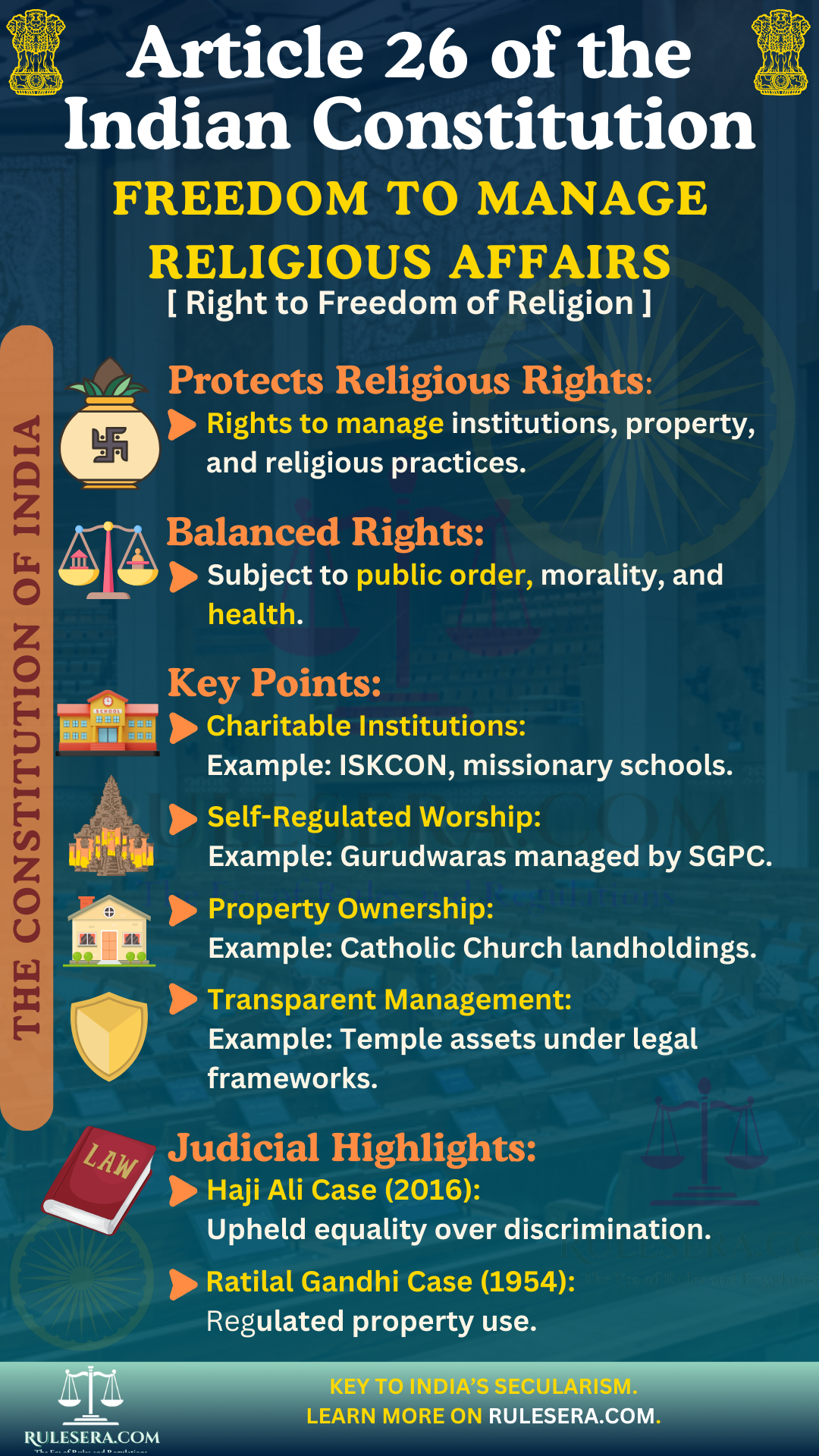Part III: Fundamental Rights
Article 26: Freedom to Manage Religious Affairs: Right to freedom of Religion

Subject to public order, morality, and health, every religious denomination or any section thereof shall have the right—
- (a) to establish and maintain institutions for religious and charitable purposes;
- (b) to manage its own affairs in matters of religion;
- (c) to own and acquire movable and immovable property; and
- (d) to administer such property in accordance with law.
Explanation
Article 26 protects the autonomy of religious denominations in managing their own institutions and affairs. This includes the right to establish religious and charitable institutions, manage religious practices, own property, and administer these properties in alignment with statutory regulations, while respecting public order, morality, and health.
Key Aspects of Article 26
- Establishment of Institutions: Religious groups can set up institutions for religious and charitable objectives, contributing to both faith and social welfare.
- Autonomy in Religious Affairs: Allows groups to self-regulate religious activities, ensuring traditions are preserved without external interference.
- Property Rights: Ensures religious entities can own property, such as places of worship, to support their activities.
- Administration in Accordance with Law: Requires that property administration aligns with legal standards, maintaining transparency and accountability.
Real-Life Applications
In the Haji Ali Dargah case (2016), the Bombay High Court ruled against gender discrimination, highlighting that the management of religious affairs must adhere to constitutional values, including equality.
Frequently Asked Questions (FAQs):
Article 26 allows religious groups to establish institutions, manage their own religious practices, own property, and administer these properties as per legal standards.
Yes, these rights are subject to considerations of public order, morality, and health, ensuring that religious practices do not infringe on societal norms and laws.
While religious denominations can administer property, they must do so in accordance with law, allowing the State to regulate for transparency and accountability.